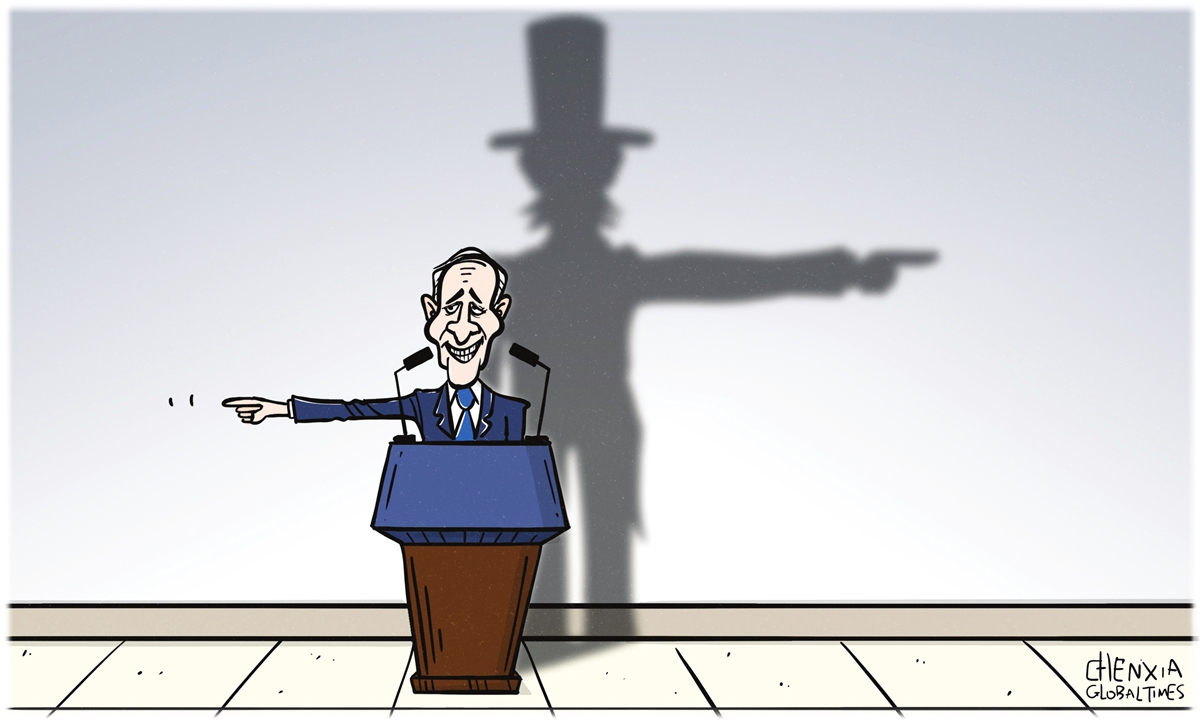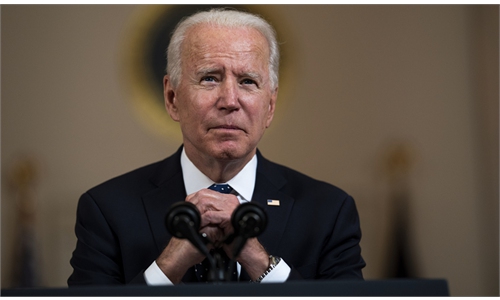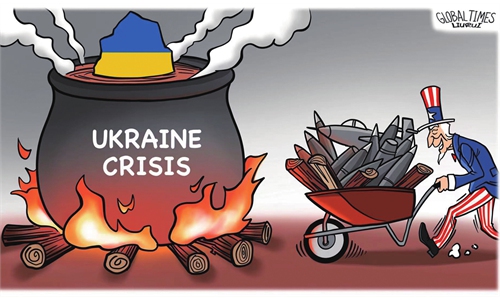
Illustration: Chen Xia/GT
When alarming things start to happen regularly, it's easy for them to become normalized in the collective psyche. In the United States we Americans are at risk of having two related disturbing trends become the accepted norm.First, US president keeps making threats against other countries.
Second, his ostensible subordinates in Washington continue to contradict him. Even the president contradicts himself after making alarming statements. This is especially so when something has to do with "war".
After the US' disgraceful withdrawal from Afghanistan last year, top US generals revealed that they advised Biden early that year to keep several thousand troops in Afghanistan, which, however, contradicted Biden's earlier comments that no one warned him not to withdraw troops from the country.
And just last month, Biden was asked in a TV program if US forces would defend the island of Taiwan against China should China send its troops. The president didn't hesitate to declare a change in US policy and said, "Yes."
But right away, the White House walked back Biden's comments and said this is not official US policy. Then at the UN General Assembly later last month, Biden said that his country does not seek "conflict" with rival China or a new Cold War.
This is far from the first time Biden has shown tendency for dragging major powers into war, only to be immediately contradicted by his team or himself.
So which statement reflects Biden's true intentions and the US' clear policy, especially on China? Biden's history of not just tacitly supporting many US wars of aggression but also leading the charge in advocacy of so many of them can certainly lead a reasonable person to take him at his word when he promises more violence.
Nevertheless, contradictions remain in statements from the president and his team and even himself. Such contradictions only reveal the chaos within the US' policymaking, and such chaos increases the risk for future war.
The same goes with the US' policy on Russia. In March, Biden said in a speech that Russian President Vladimir Putin should not be allowed to remain in office, as the US continued its proxy war against Russia in Ukraine. White House communication staffers then contradicted the president.
In quite a similar scenario, a few days ago Biden warned of "Armageddon" if Russia was to use a nuclear weapon in Ukraine. Again, the White House issued a retraction saying that the president's warning was not based on any new intelligence saying the use of nuclear weapons is imminent.
If we go to war based on decisions of our elected officials in Congress and the White House, the process is at least more open and clear and we can yet make some type of tenuous claim to democracy.
When a president's repeated and consistent declared bellicose policies are deemed unofficial and the designation of "official" war policy is instead granted to contradictions made by unelected staff workers, the least that we can say has happened is "a coup by rhetoric."
That the rhetorical usurping should ever take material form is almost too dark to consider. As the Washington Post put it, Biden's "rinse-and-repeat cycle of veering off-script - followed by his team's now well-honed cleanup efforts - has at times complicated US policy goals and even undermined Biden himself."
The author is a Chicago-based columnist covering US politics & culture. He is also a university English & critical journalism instructor. opinion@globaltimes.com.cn


